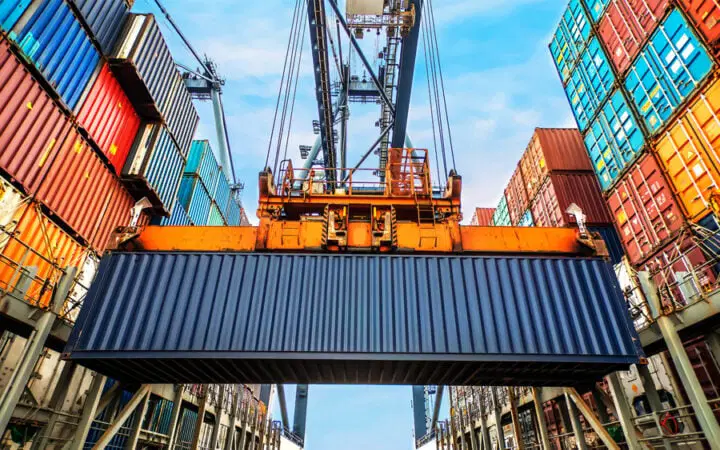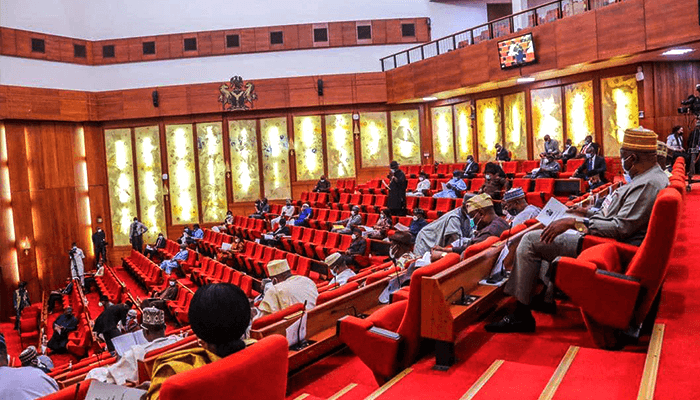
Amid rapid expansion in Nigeria’s non-oil exports, there are indications that local operators in the sector are losing out to their foreign counterparts, especially those from Asian countries, notably, Indians, Chinese, Lebanese and Vietnamese.
Also industry operators have indicated that the expected economic benefits of a diversification from oil-dependent to non-oil export are being lost to the business model deployed by the foreign operators.
Reports from the National Bureau of Statistics, NBS, and appraisal by the Nigerian Exports Promotion Council, NEPC, has shown that with steady growth, Nigeria’s non-oil earnings had surged to N4.8 trillion in the first half of 2025, up by over 391% from N977 billion recorded in the corresponding period of 2021.
For the NEPC, this result validates President Bola Tinubu’s “Renewed Hope Agenda.”
NEPC’s Director General, Nonye Ayeni, speaking on the H1 2025 report, stressed:
“We are seeing positive dividends of the President’s policies. Our mandate is to sustain momentum by working with the Ministry of Trade and Industry, the players and stakeholders to provide incentives that encourage more exports.”
Yet, most stakeholders in the industry are now painting a different picture, showing that the actual state of the sector was not as rosy as the numbers suggest.
While some point to predominance of non-value added component of the statistics, others are more concerned with trade practices that have clearly undermined Nigeria’s interest in the sector.
Capital, administrative bottlenecks stifling real growth – NCAN:
Dr, Ojo Ajanaku, the President, National Cashew Association of Nigeria, NCAN, the umbrella body of cashew farmers, processors, marketers and exporters, painted a disturbing picture of the odds stacked against members.
He told Financial Vanguard that members had the capacity to grow more and were willing to contribute to Nigeria’s Gross Domestic Product, GDP, through export, but were handicapped.
He stated: “We have so many challenges. First, there is the issue of funding. We would have done more than we are doing currently but so many potential exporters among us are handicapped.”
According to him, the prohibitive interest rates remain a huge huddle.
He also disclosed that foreigners currently dominate the Nigeria export trade, adding that they had better funding with foreign currency, supported by better deal from Nigeria’s financial institutions in funding their exports.
Ajanaku stated: “These foreigners come with cheaper funds, both from their home countries and from Nigerian banks, which they get at reasonable interest rates.
“Sometimes, they simply come with a portfolio of documents to access funds in Nigerian banks. We as Nigerians, cannot access such funds because of collateral.
“These foreigners that buy cashew and other export commodities from potential Nigerian exporters and producers, export these products without filling the Nigerian Export Proceed Form which is called NXP form.”
Ajanaku explained that by doing so, the Nigerian economy is worse off because the bulk of the money they make goes out to their country’s economies since they don’y fill NXP Form that would have compelled them to repatriate all the proceeds to Nigeria.
“We also have foreigners in the field putting pressure on our local farmers who believe that, if those foreigners leave the country, they’ll not get buyers to sell their products thereby harvesting the crops prematurely.
“This reduces the potential of the seed because when you forcibly harvest cashew before maturity, you cut down the flower that is originally supposed to bud and produce another set of cashew,’’ he said.
Moreover, he disclosed that the foreigners out-bid Nigerian operators in the quest to get product supplies from the local suppliers because they are better funded.
Ajanaku also identified the challenge of administrative bottlenecks imposed by various agencies of government at the ports.
Lamenting the consequences, he stated: “We are not able to meet with contractual terms sometimes, due to logistics challenge and administrative bottlenecks.
‘’Your goods will not enter the ports when it’s supposed to enter the ports and when it gets to the ports, it’s not shipped when it’s supposed to be shipped due to one administrative bottle necks or the other.
“If we process what we produce in the country, we add more value and sell at a better price than exporting raw nuts. The challenge here is that, the cost of processing in Nigeria is high. And for that, Nigerian processors are not able to process and compete with countries such as Vietnam and India.
“We are hoping and believing that if government can give what we call Special Agro-Processing Loans with minimal collateral, that will help our processors to compete favourably with others internationally. The interest on the loan should not be more than. 3-5 per cent maximum, if not less.
“We are also saying government can give energy incentives to agro processors in the country to encourage farmers to produce more. That way, farmers are not left to struggle with processing, government would have taken the bull by the horns to deal with this. Remember Energy incentives and agro-processing loans with minimal collateral.
“These are the areas we have challenges in the export of non-oil products. We believe that when these are taken care of, we will produce more because we are currently producing far below our capacity.
“Take cashew for instance, we were the leading producer in the world but today, we have dropped to number four. Meanwhile, we have land that criminals have taken over, which can be converted to cashew farms and other commodities such as palm trees, cocoa, rubber etc.
“If we encourage local processing, more Nigerians will go into farming because they’ll make more money and oil will take the back seat. Agriculture can generate the kind of jobs needed in Nigeria because of the value chain.”
Analysts demand shift to value addition:
However, Dr. Mark Ojobi, lecturer at Yakubu Gowon University, Abuja, explained that the non-oil sector was experiencing strong growth, though with challenges.
He stated: “Subsidy removal and floating the naira increased import costs while making exports more attractive. Exporters suddenly saw opportunities because their earnings in foreign currency converted into more naira yields much more profits.”
He also noted that Nigeria’s membership of African Continental Free Trade Agreement, AfCFTA, was beginning to open new regional markets, especially for agro-products.
But Ojobi warned: “We are still largely exporting raw commodities, such as cocoa beans, cashew nuts, sesame seeds. These earn less than processed goods. Value addition is the only way to unlock full potential.
“We must shift from raw commodity exports to value-added products. That’s the difference between Nigeria earning $13 billion in 2025 and earning $50 billion for the same quantity of exports.”
Economist and Public Affairs Analyst, Chief Peter Ameh, pointed to gaps: “A huge chunk of our exports, especially agricultural produce and solid minerals, go through informal channels due to the bottlenecks in the trade administrative system. NBS itself admits its figures are estimates.
“Trade across Benin, Niger, Cameroon and Chad is largely unrecorded. The true non-oil export figure could be much higher or lower.”
But watchdog groups such as the Civil Society Legislative Advocacy Centre, CISLAC, argue that Nigeria’s export was still “operating below capacity.”
Its Executive Director, Auwal Musa, said: “We are sub-optimal in every value chain. Statistics must reflect the impact on ordinary Nigerian exporters. The ultimate goal is to improve lives, not just publish export figures.”
NEPC reacts
Reacting to issue raised by players in the non-oil sector, spokesperson of the Nigeria Export Promotion Council, NEPC, Mr. Ndubueze Okeke, explained that most of issues especially those relating to interest rates and delays experienced by exporters at the ports were not within the council’s jurisdiction.
He said: “These areas are within the purview of the CBN and commercial banks as well as the Nigerian Ports of Authority and probably the ministry of finance.”
VANGUARD.




